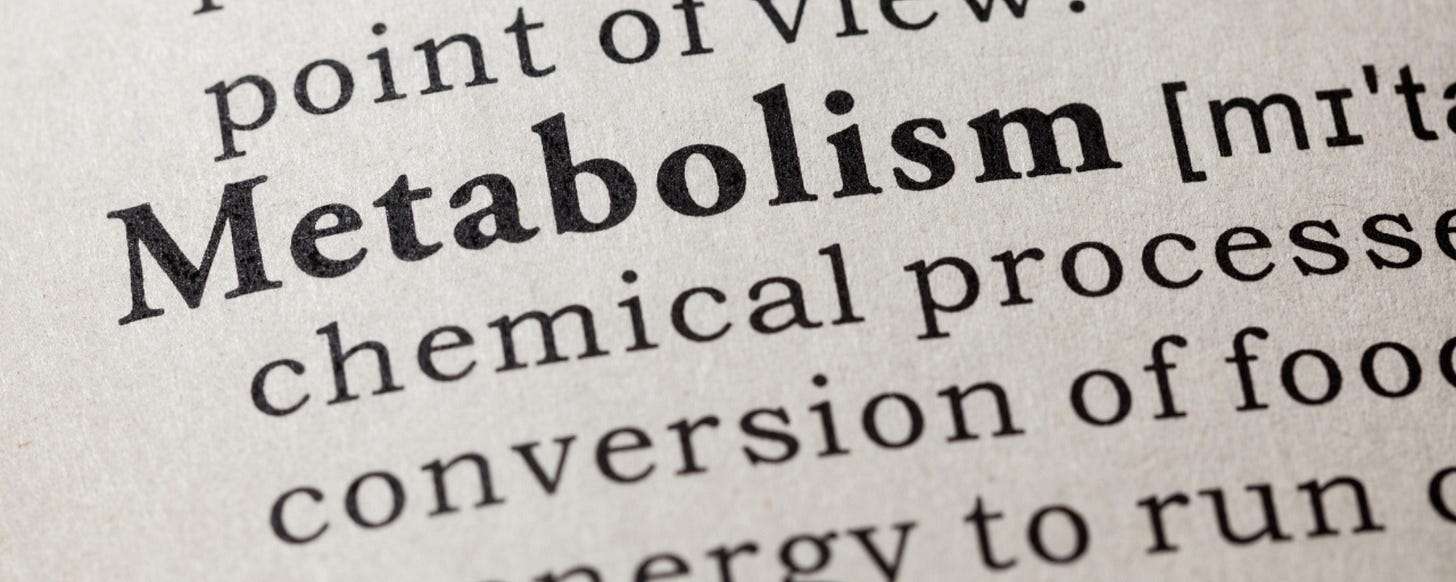Muscle is More Important Than You Think
How muscle loss downgrades your life.
In this article:
Me pounding it into your head that muscle is important for your quality of life
Common and substantial negative effects of muscle loss
If you follow me on Facebook, you may have noticed that I’m pushing the ‘downsides to muscle loss’ narrative pretty hard right now. This isn’t something I would’ve talked about 10 or 20 years ago, as I was younger and it’s not exactly something young people think about. When we’re young and into training, muscle gain is the concern; muscle loss isn’t even on our radar.
This is the case with other things in life as well; we often aren’t concerned with or planning for things that we know won’t happen for decades to come, or maybe aren’t even aware they’re going to happen at all. One of the classic illustrations of what I’m talking about is investing for retirement; the younger we start, the better off we’ll be, but most of us still fail to prioritize it in our youth. I know that’s a completely non-muscle topic, but I think it’s perfect for getting my point across.
Anyway, now that I’m not in my 20s or 30s anymore, my focus has shifted from trying to gain as much muscle as possible to trying to maintain as much muscle as possible. The last thing I want is to prematurely experience the downsides of muscle loss. The reason I’m writing this article is to ensure you feel the same way too. I don’t want you experiencing those downsides, and me sitting here typing away is proof of that!
To be completely honest, and at the risk of sounding boastful, I feel f$&king great at 44 years old. I simply can’t get my message across without telling you how good I feel. It’s just the way it is and I want you feeling the same way. When I was younger, I had no idea I’d be able to feel this way into my 40s. At the same time, I know feeling this way doesn’t just happen…it’s a result of prioritizing muscle growth and/or maintenance no matter the stage of life we’re in. You need to do this to feel your best.
Now, without further ado, let me do my best to scare you into building and hoarding precious muscle.
Negative Effects of Muscle Loss
When laid out in itemized form, it becomes clear how much muscle helps us and adds to our lives.
As you read the following effects of muscle loss, think about how your life would change if these effects became your reality. How would you feel?
Reduced Strength & Mobility
As muscle is lost, so is strength. Most people take their muscle for granted and just assume they’ll always be able to do everyday actions, such as standing up from a chair and walking around or taking care of themselves throughout the day.
You may have enough muscle and strength to do those things now, but there’s no guarantee it’ll always be there.
Imagine if you lost that ability, or if the things that used to feel easy gradually became more and more challenging due to muscle loss.
Metabolic Slowing & Weight Gain
We can boil this one down to simple facts:
Muscle is active tissue, meaning it burns more daily calories than fat, which is an inactive tissue. When a person loses a portion of their muscle mass, they inherently reduce their degree of resting and working daily caloric burn.
Burning fewer calories per day increases the challenge of keeping weight off and often results in weight gain over time. Think of it this way; if you’re burning fewer calories per day, you have to eat less to avoid weight gain. On the flip side, burning a larger amount of calories per day allows for more food consumption without weight gain. Which sounds better to you?
Reduced Confidence, Mental Health, and Physical Appearance
When we look in the mirror, liking what we see gives us confidence. The reflection of a strong and muscularly capable person helps us feel good about the work we’ve done to achieve that look. It gives us the knowing that we’re capable of working to accomplish something, which feels great.
Of course, having a healthy athletic reflection brings feelings of positivity, where a reflection lacking in visual signs of strength and health just doesn’t generate those same feelings. It’s not a confidence-booster to look in the mirror and not like what you see. The troubling part is that you can easily fall into a downward spiral as a result.
One of the worst side-effects of an undesired reflection is how it can impact your willingness to step out of your comfort zone and into a gym, a group fitness class, or an outdoor activity.
Losing confidence leads to being afraid of what others will think, which leads to foregoing the steps to change, which leads to nowhere. Outside of a sudden renewal in personal willpower and determination, the reflection tends to worsen and the downward spiral continues.
Reduced Bone Density & Increased Chronic Conditions
Muscle loss reduces bone density. Over time, especially in older individuals, osteoporosis is more likely to develop in those with less muscle. Also, serious injuries such as broken bones or bone fractures occur more often in those with reduced bone density. As we know, depending on our age, a broken bone can be life-threatening.
Muscle loss is also shown to be linked to increased cases of diabetes, cardiovascular diseases, and a weakened immune system.
Clearly, these are serious health problems. Why not work to build and keep your muscle to help avoid them?
It All Adds Up to an Overall Decrease in Quality of Life
While there are more negatives to muscle loss, I mentioned the ones that stand out to me the most. Zooming out and realizing that these things can easily stack and happen simultaneously, it’s unbelievably easy to see just how much muscle drives quality of life.
Honestly, I don’t believe the majority of people understand just how important muscle is to living their best life from start to finish.
Conclusion
Through continued educational articles, like this one, I hope to make more and more people aware of just how important muscle is to their lives. The work we put in during our 20s, 30s, and 40s helps us look and feel our best into our 50s, 60s, and beyond.
Again, back to the financial analogy, the value of starting to invest early is priceless because you can never get those years of valuable compounding interest back. With muscle, it’s no different. It’s easiest to build in our 20s and 30s and, once they pass, we’ll never get those prime growth years back. If you’re reading this as a newcomer to the gym, and your 20s and 30s are already in the rearview mirror, don’t be discouraged.
Remember this, the two best times to plant a tree are twenty years ago and today. It’s time to plant that tree!
In my next article, I’ll provide information on the two most important actions you can take to build and keep your hard-earned muscle.
Thank you for reading,
Ryan









Great read. I love seeing content that promotes the health benefits of building muscle for longevity. Building muscle shouldn't be seen as purely vanity driven, it's THE health metric that will determine your quality of life as you age. I plan to still be squatting heavy and running fast when I'm 80, and I'm prepping for that now
This is excellent and just what I needed to read. It's been on my mind more and more about the longevity piece, which motivates me to get back into a routine. Thank you!